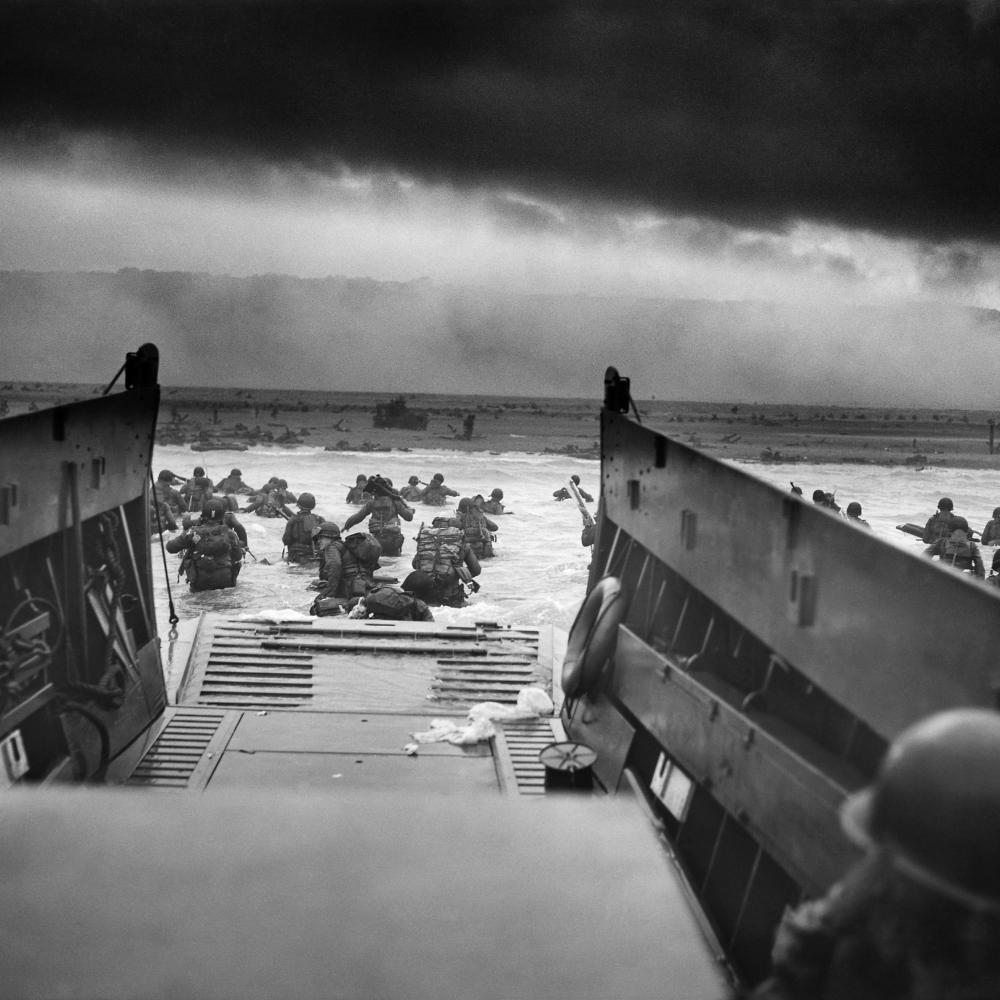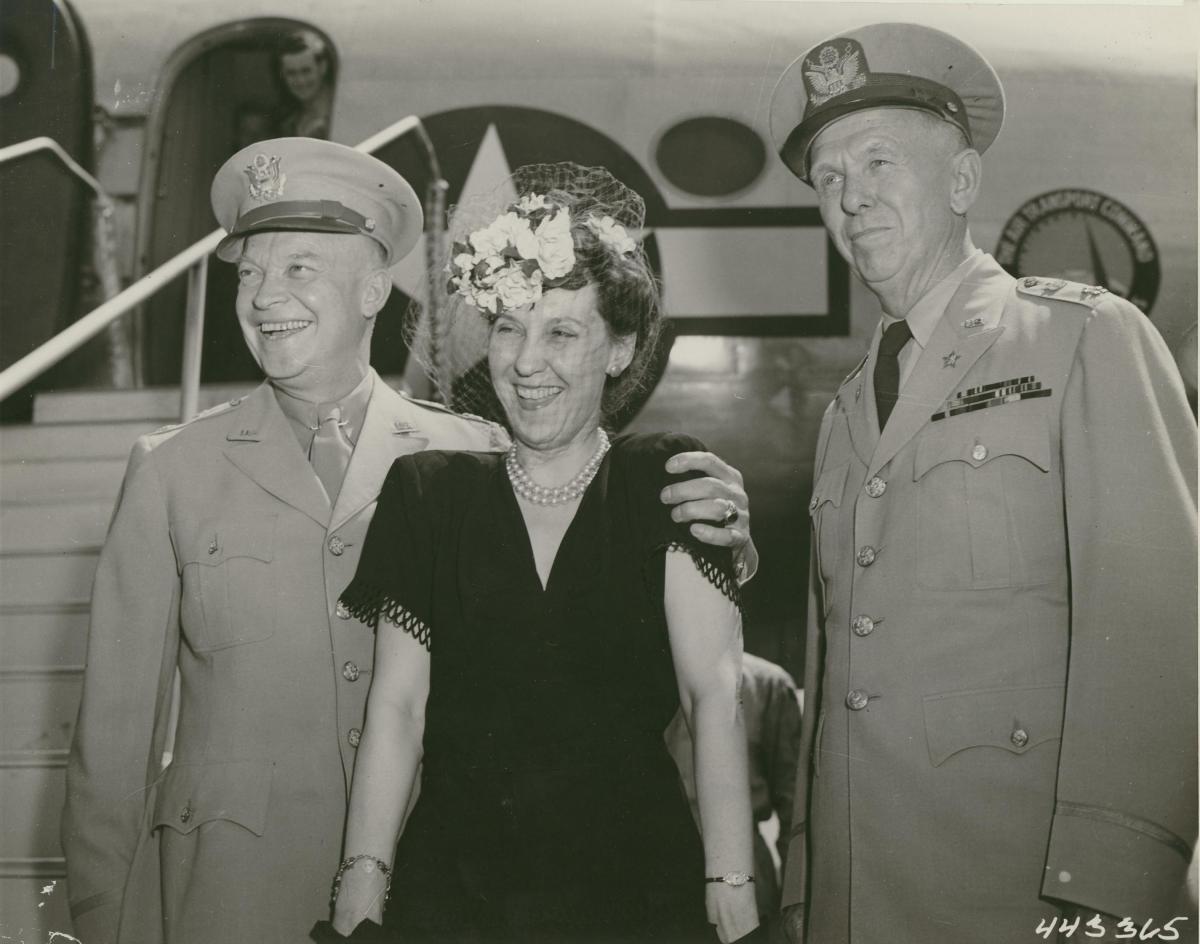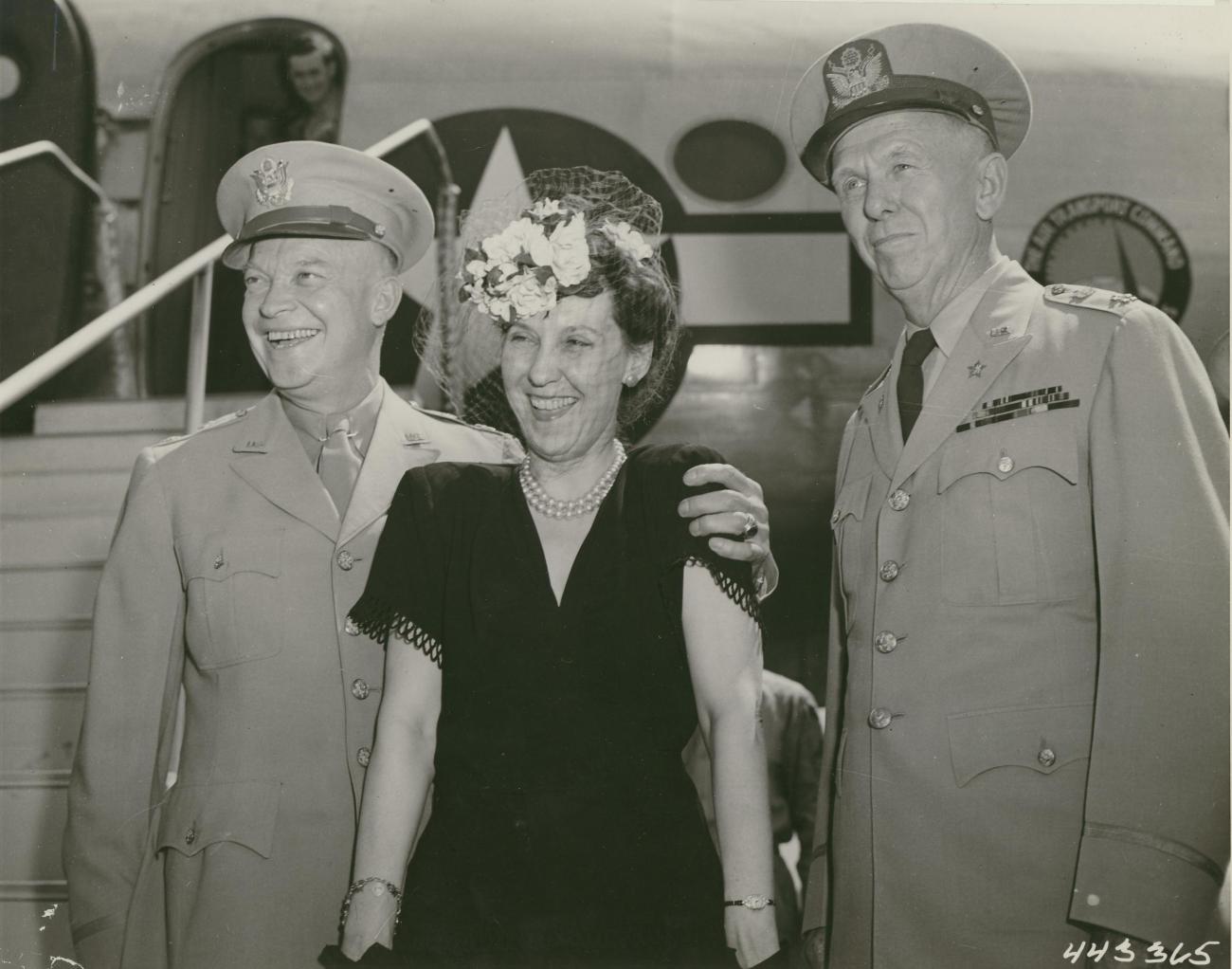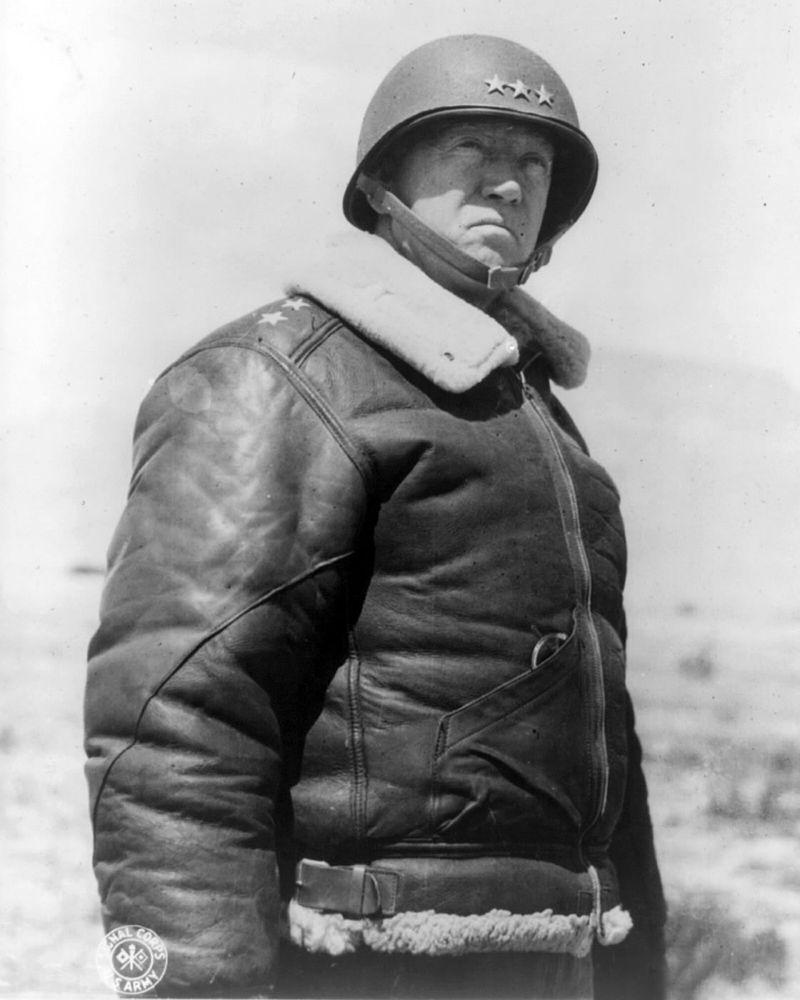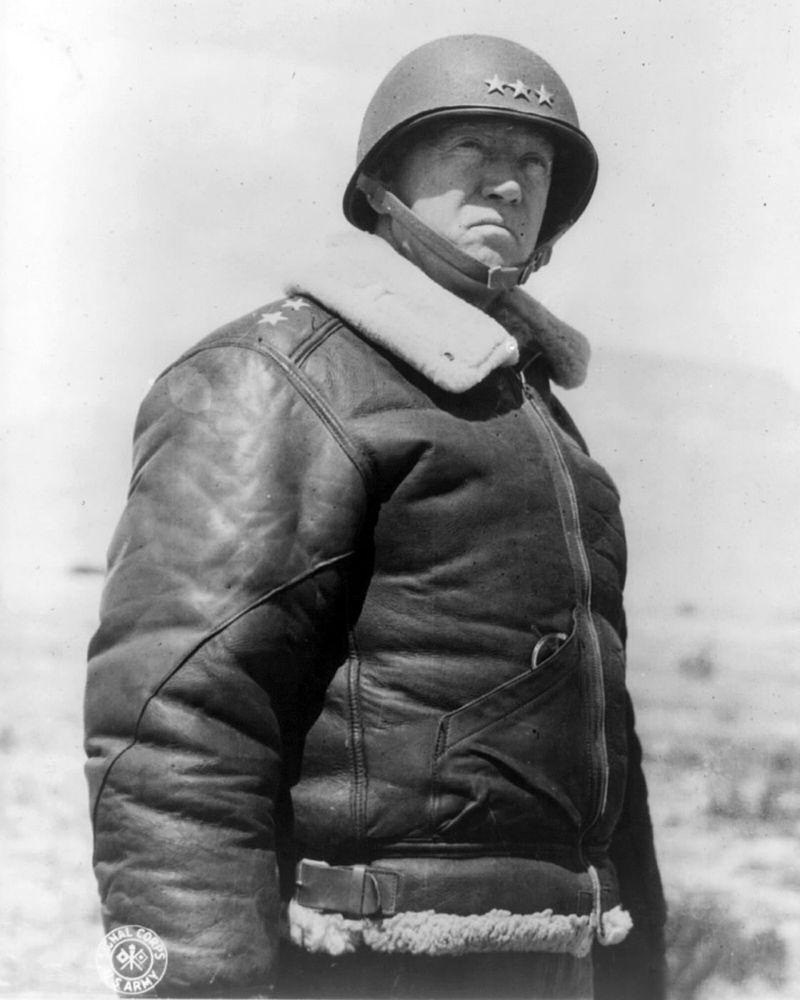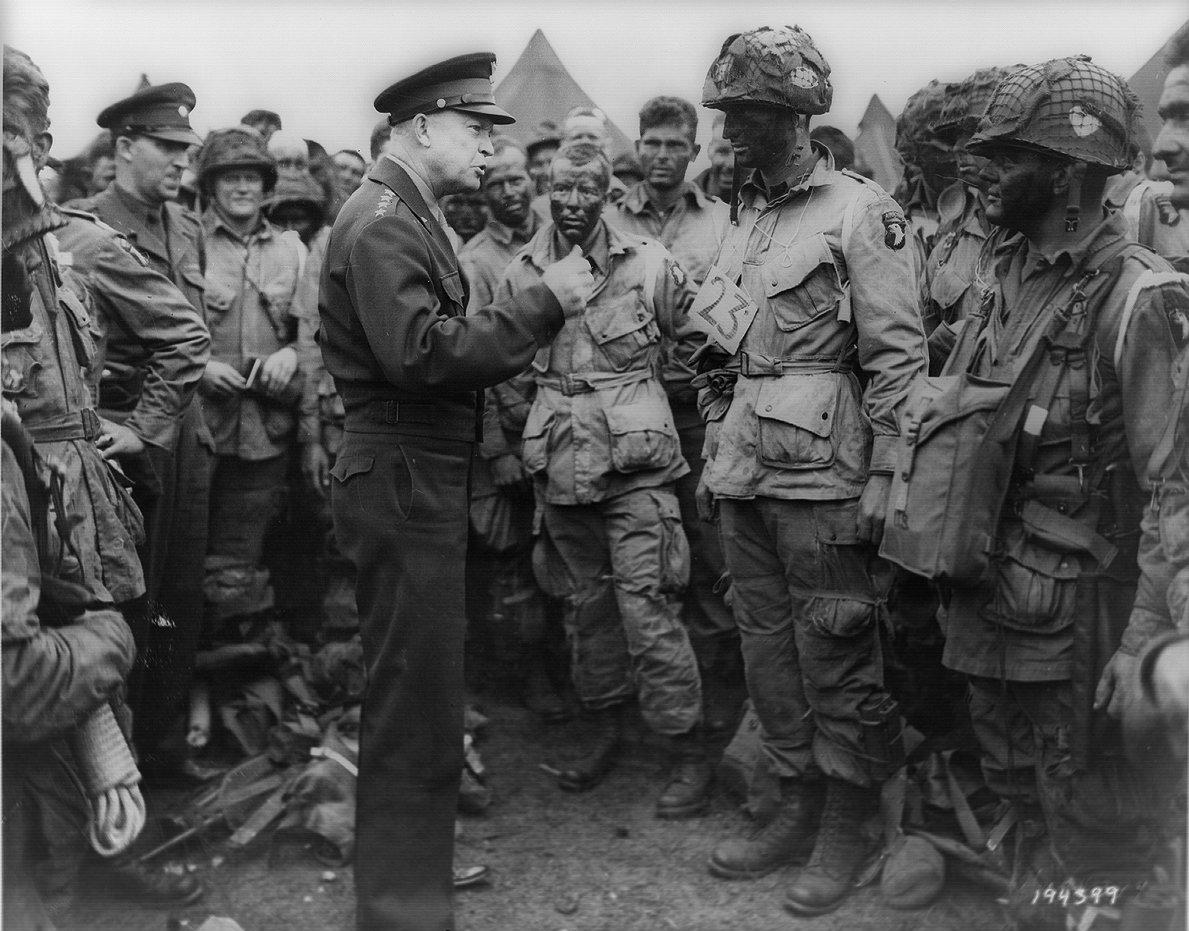Shortly before midnight on June 5, 1944, airplanes carrying two American airborne divisions and their British colleagues departed from the south of England, bound for northwestern France. Waves of heavy bombers joined them in the heavens, cutting through relatively clear skies after days of rain and thick cloud cover. As the squadrons made their way across the English Channel, mine sweepers worked the choppy seas below to clear a path to the beaches where Allied troops would come ashore in a few short hours. The landing points had been given the code names of SWORD, JUNO, and GOLD, along with UTAH and OMAHA, names that would soon become synonymous with both success and death.
As June 6 turned from night into morning, American, British, and Canadian soldiers shook off their sea legs, adjusted their packs, and stumbled from the landing craft into sandy reaches of the French coastline. Before the day was out, 160,000 Allied troops would come ashore in France, their delivery made possible by a naval task force consisting of 5,000 ships. Overhead, more than 1,200 Allied aircraft made 11,000 sorties, dropping 12,000 tons of bombs on the entrenched German army. The Allies had just launched the largest amphibious operation in history with the goal of ousting Nazi Germany from France.
This June marks the seventy-fifth anniversary of the first stage of Operation OVERLORD, or D-Day as it is popularly known. The invasion of Normandy served as a turning point on the western front in World War II, putting the American and British armies on the road to Berlin and one step closer to defeating Adolf Hitler. More than two million Allied soldiers would be in France come August.
The previous December, President Franklin D. Roosevelt selected, with Prime Minister Winston Churchill’s blessing, Major General Dwight D. Eisenhower to organize OVERLORD. The plainspoken farm boy from Kansas received the lofty title of Allied Supreme Commander. From London, Eisenhower then ordered, planned, cajoled, and charmed his way to making OVERLORD a reality. It was an immensely stressful job that involved managing the egos and mindsets of both the American and British military establishments.
One of Eisenhower’s biggest supporters and advocates was General George C. Marshall, the stately Virginian who served as the chief of staff of the U.S. Army. Marshall had been a leading contender for the job of Allied Supreme Commander, but, following Eisenhower’s appointment, he put aside any hard feelings. There was a war to be won and the success of OVERLORD was essential to an Allied victory.
With Eisenhower in London and Marshall in Washington, D.C., the generals depended upon radiograms, cables, and letters to convey their views, share news, and solve problems. Both were known for precise writing that rarely left a doubt as to what they were thinking. And with each other they could be brutally candid.
What follows is a selection of the correspondence between the two men in the six months leading up to D-Day. The material was drawn from The Papers of Dwight D. Eisenhower, The War Years, Volume III and The Papers of George Catlett Marshall, Volume IV, Aggressive and Determined Leadership. Both edited collections were supported by major grants from NEH.
* * *
Aware of the immense job that Eisenhower was about to assume, Marshall wanted him to get some rest and see his family before the demands of being Allied Supreme Commander made taking a vacation impossible. The fifty-four-year-old Eisenhower had been based in Algiers, Algeria, during 1943, while he served as commander of Allied Forces in the Mediterranean. He had also become one of the most famous men in the world.
Marshall to Eisenhower
December 29, 1943
. . . Finally with reference to your last paragraph I think you made a mistake by not coming home first. Things have been going ahead in the UK for a long time and under a wise and aggressive man [Churchill] and [Brig. General Walter Bedell] Smith has already been there. You will be under terrific strain from now on. I am interested that you are fully prepared to bear the strain and I am not interested in the usual rejoinder that you can take it. It is of vast importance that you be fresh mentally and you certainly will not be if you go straight from one great problem to another. Now come on home and see your wife and trust somebody else for 20 minutes in England.
Eisenhower to Marshall
December 30, 1943
. . . With respect to my coming home you are mistaken in thinking that I fail to realize the desirability of a good rest. Moreover I realize that there has been a very fine man [Bedell Smith] operating in England. It happens that is it that particular man who has been urging me to arrive there as quickly as possible. The other feature of the affair is that I frankly feared that there would be no possibility of obtaining any rest through making a hurried trip to the United States. With several days consumed in travel each way and a conviction that I must get back here to turn over this theater to the new commanders at the earliest possible moment I feared I would simply be out of the frying pan and into the fire. However if I can find enough people to provide me a bridge game on the way over and back I may be mistaken on this point. . . . I earnestly request that you keep this visit as secret as possible. I want to minimize the demands upon my time by well meaning friends and others who do not bear direct responsibility in the prosecution of this war. While I would rather like to surprise my family I think it best if you have Mrs. Eisenhower notified. However, under no circumstances is she to come to the plane. I have a very great desire to see my mother who is now very aged. Since I doubt that she could stand the plane trip from Kansas to Washington I think I could have to run out there. . . .
Eisenhower arrived in Washington, D.C., on January 2. In the memo below, Marshall outlines Eisenhower’s trip for the president.
Memorandum for the President
January 4, 1944
General Eisenhower arrived in Washington early Sunday morning on a fast flight from Algiers. I had brought him home, over his strenuous objections, to force him to take a brief rest before he undertakes his heavy obligations in England. He was to have left Washington the evening of the day he arrived, but bad weather intervened and he was delayed until the next evening when he went up to see his son at West Point. He goes on to see his mother. He will then take a few days with Mrs. Eisenhower in a cottage at the White Sulphur Springs hospital, after which he is to come back to Washington.
As you have been confined to your room and it was desired to get General Eisenhower out of town as quickly as possible, to avoid publicity, I did not bring up the matter of his seeing you. On his return to the city I should like to have you give him an appointment.
I hope to have him return to Washington just before his departure for England. We have placed a strict censorship on everything regarding him but even so if he is seen about town the matter is bound to leak.
After his trip to Washington, Eisenhower took up his new post in London, where he would oversee the planning and execution of OVERLORD, the invasion of northwest France, and ANVIL, the invasion of southern France. It had taken Britain and the United States two and a half years to have the men and materiel in place to launch an offensive against Nazi-occupied France. In the interim, they had successfully invaded French North Africa and become bogged down in a bloody campaign in Italy. Throughout the spring, American and British military planners attempted to balance the needs of OVERLORD with the demands of ANVIL, while sustaining the Italian campaign. The invasion of France had to succeed, or the Allied war effort in western Europe would be in jeopardy. Given the high stakes, the question of where and how to allocate resources led to intense debates on both sides of the Atlantic.
Marshall to Eisenhower
February 7, 1944
. . . Judging from the discussions and differences of opinion at the present time the British and American Chiefs of Staff seem to have completely reversed themselves and we have become Mediterraneanites and they heavily pro-OVERLORD. The following are my personal views:
OVERLORD of course is paramount and it must be launched on a reasonably secure basis of which you are the best judge. Our difficulties in reaching a decision have been complicated by a battle of numbers, that is, a failure to reach a common ground as to what would be the actual facilities. As to this the British and American planners here yesterday afternoon agreed that there is sufficient lift to stage at least a 7-Division OVERLORD and at the same time a 2-Division ANVIL on the basis of May 31st. This is an apparent disagreement with the British planners in London, or Montgomery, I don’t know which.
As to ANVIL my personal feeling is this: Do you personally consider that of the combined landing craft thought to be available so much must go to OVERLORD that only a 1-Division lift will remain for ANVIL. If you consider this absolutely imperative then it should be done that way. However, the effect will be that approximately 8 or 9 less Divisions will be heavily engaged with the enemy, Divisions which will be available in the Mediterranean. Can you afford to lose this pressure, considering an additional factor, that we are almost certain to get an uprising in southern France to a far greater degree than in the north?
As to the British references to the Italian situation I would say this: If we find ourselves in Italy in early April still unable to establish our lines north of Rome then ANVIL would of necessity be practically abandoned, because we would have a good and sufficient fight on our hands for a considerable number of troops and the use for at least a 1-Divisional lift for end runs. However, if we have established ourselves north of Rome by that time, early April, there will not be a place for all the Divisions available in the Mediterranean unless it is believed that an advance into the Po valley is the profitable enterprise. With this I do not agree because it would inevitably require a heavy amphibious lift in order to get the lines through the mountains and would involve innumerable delays.
Count up all the Divisions that will be in the Mediterranean, including two newly arrived U. S. Divisions, consider the requirements in Italy in view of the mountain masses north of Rome, and then consider what influence on your problem a sizeable number of Divisions heavily engaged or advancing rapidly in southern France, will have on OVERLORD.
I will use my influence here to agree with your desires. I merely wish to be certain that localitis is not developing and that the pressures on you have not warped your judgment.
Eisenhower to Marshall
February 8, 1944
. . . You have placed your finger on the point that to me appears critical in the Mediterranean aspect of our spring campaign, which is that we must strive in every way to promote a battle there that engages efficiently all of the combat forces we can make available. This is the point that I have stressed in local conversations. The great advantage of a successful ANVIL is that it would open up a certain channel through which all of our forces could be engaged, and would have an earlier effect upon the enemy situation in France than would a continuation of the Italian campaign even on an intensive basis. As you pointed out, however, if we cannot soon achieve our aims in Italy we are committed to that battle and probably with everything we have down there. . . .
In the various campaigns of this war, I have occasionally had to modify slightly my own conceptions of campaign in order to achieve a unity of purpose and effort. I think this is inescapable in Allied operations but I assure you that I have never yet failed to give you my own clear personal convictions about every project and plan in prospect. So far as I am aware, no one here has tried to urge me to present any particular view, nor do I believe that I am particularly affected by localitis. I merely recognize that OVERLORD, which has been supported earnestly for more than two years by the U.S. Chiefs of Staff, represents for the United States and the United Kingdom a crisis in the European war. Real success should do much to hasten the end of this conflict but a reverse will have opposite repercussions from which we would recover with the utmost difficulty. . . .
Eisenhower to Marshall
March 21, 1944
. . . I visited troops last Sunday—and got real recreation and a lift out of it. This week I’m going to see several outfits and am taking the PM [Winston Churchill] along. I think he’ll like it, and I know the troops will.
The arguments, pro and con, on Anvil prospects versus efficiency in our own loading programs are getting a bit wearing. We’ve been over the ground so often that more talk seems completely useless, while I must say that the past two months of argument have not, so far as I can see, changed the convictions of any single individual that has been involved. Matters must be cleared up soon.
With the Allied campaign in Italy bogged down, the Joint Chiefs of Staff decided to delay ANVIL, which helped resolve some of Eisenhower’s concerns about the availability of men, landing craft, and materiel for OVERLORD. Now, with the focus only on the invasion of northwestern France, ongoing problems about allocation of shipping and air support were slowly being resolved. “As usual at this stage of preparation for an operation our problems are seemingly intricate and difficult beyond belief. Each day though, there is definite progress and I have not lost any of my confidence that we shall make a go of it,” Eisenhower wrote Marshall on April 17, 1944.
Despite Eisenhower’s optimism, an old problem in the person of Lieutenant General George S. Patton surfaced again. The charismatic Patton had distinguished himself on the battlefield in French Morocco, Tunisia, and Sicily, only to tarnish his reputation by slapping two soldiers suffering from battle fatigue or what we would now call PTSD. The resulting outcry against Patton led to his being quietly sidelined. With OVERLORD on the horizon, Marshall and Eisenhower wondered whether they could put Patton in charge of combat troops. Instead, they put him in charge of training the newly formed U.S. Third Army, then based in Britain. But with six weeks until the start of OVERLORD and Congress about to vote on his next promotion (“permanent makes”), Patton was in trouble again.
Marshall to Eisenhower
April 26, 1944
Newspapers today carried glaring reports of General Patton’s statements reference Britain and America’s rule of the world. We were just about to get confirmation of the permanent makes. This I fear has killed them all.
Eisenhower to Marshall
April 29, 1944
. . . Apparently he [Patton] is unable to use reasonably good sense in all those matters where senior commanders must appreciate the effect of their own actions upon public opinion and this raises doubts as to the wisdom of retaining him in high command despite his demonstrated capacity in battle leadership. In this case the only excuse he gave to Smith, who has talked to him, is that he spoke to about sixty people at a private gathering and did not repeat not know that any representative of the press was present. His actual words according to my reports were, “Since it seems to be the destiny of America, Great Britain, and Russia to rule the world, the better we know each other the better off we will be.”
While his exact remarks on this occasion were incorrectly reported and somewhat misinterpreted in the press I have grown so weary of the trouble he constantly causes you and the War Department to say nothing of myself, that I am seriously contemplating the most drastic action. I am deferring final action until I hear further from you. Specifically I should like to know whether you still feel, after the lapse of several days, that his latest statements have caused such serious reaction at home as to prevent the War Department securing congressional approval of any of its recommendations. Regardless of the answer to the above question do you consider that his retention in high command will tend to destroy or diminish public and governmental confidence in the War Department? . . .
Marshall to Eisenhower
April 29, 1944
. . . His remarks as quoted have created a stir throughout the United States. I quote excerpts from an editorial this morning in the Washington Post: “General Patton has progressed from simple assault on individuals to collective assault on entire nationalities. As Congressman Mundt observed, he has now ‘succeeded in slapping the face of every one of the United Nations except Great Britain’ the General insists that he excepted the Soviet Union too. But the distinction does not seem to us to be vital.” The editorial then refers to his remarks on welcoming the Germans and Italians into Hell and also his reference to the “English ladies” and “American dames,” with this comment “This was intended no doubt as gallantry and perhaps as a rough sort of military humor. The truth is however that it is neither gracious nor amusing. We do not mean to be prissy about the matter but we think that Lieutenant Generals even temporary ones ought to talk with rather more dignity than this. When they do not they run the danger of losing the respect of the men they command and the confidence of the public they serve. We think that this has happened to General Patton. Whatever his merits as a strategist or tactician he has revealed glaring defects as a leader of men. It is more than fortunate that these have become apparent before the Senate takes action to pass upon his recommended promotion in permanent rank from Colonel to Major General. All thought of such promotion should now be abandoned. That the War Department recommended it is one more evidence of the tendency on the part of members of the military to act as a clique or club. His brother officers must have had some awareness of General Patton’s lack of balance, etc, etc. We confess to some perplexity as to the entire practice of permanent promotions in the midst of war. Why cannot all of these wait until the war is over and we can judge the records of our military men with some perspective? General Patton’s case affords an object lesson.”
Like you I have been considering the matter on a purely business basis. Its effect on you and the troops and on the confidence of the public in the War Department and in you is opposed to the unmistakable fact [that] Patton is the only available Army Commander for his present assignment who has had actual experience in fighting Rommel and in extensive landing operations followed by a rapid campaign of exploitation. Whether or not we can forego the latter advantage because of the unfavorable effects referred to I leave entirely to your decision.
You carry the burden of responsibility as to the success of OVERLORD. If you feel that that operation can be carried out with the same assurance of success with [Courtney] Hodges in command, for example, instead of Patton all well and good. If you doubt it then between us we can bear the burden of the present unfortunate reaction. I fear the harm has already been fatal to the confirmation of the permanent list.
Eisenhower to Marshall
April 29, 1944
. . . Frankly I am exceedingly weary of his [Patton’s] habit of getting everybody into hot water through the immature character of his public actions and statements. In this particular case investigation shows that his offense was not so serious as the newspapers would lead one to believe, and one that under the circumstances could have occurred to almost anybody. But the fact remains that he simply does not keep his mouth shut. . . .
Eisenhower’s message to Marshall included a copy of a letter that he wrote to Patton in which he relayed his disappointment in Patton’s “impulsiveness in action and speech” despite repeated warnings. Eisenhower told him that his case was still being reviewed, but, in the meantime, he should be under no illusions as to the seriousness of his situation. “I want to tell you officially and definitely that if you are again guilty of an indiscretion in speech or action that leads to embarrassment for the War Department or any other part of our Government, or for this Headquarters, I will relieve you instantly from command.”
Marshall to Eisenhower
May 1, 1944
. . . [R]egarding Patton the decision is exclusively yours. My view, and it is merely that, is that you should not weaken your hand for OVERLORD. If you think that Patton’s removal does weaken your prospect, you should continue him in command. In any event, I do not want you at this time to be burdened with the responsibility of reducing him in rank. Send him home if you see fit, and in grade, or hold him there as surplus if you so desire, or as I have indicated above, continue him in command if that promises best for OVERLORD. I fear my quotation from one editorial may have resulted in over emphasis in your mind of the necessity for drastic action to meet difficult resulting situation here at home. Incidentally, the numerous editorials, while caustic regarding his indiscretion, lack of poise or dignity, suitable to his position have not demanded his release from command.
Do not consider War Department position in the matter. Consider only OVERLORD and your own heavy burden of responsibility for its success. Everything else is of minor importance.
Eisenhower to Marshall
May 3, 1944
There is no question that relief of Patton would lose to us his experience as commander of an army in battle and his demonstrated ability of getting the utmost out of soldiers in offensive operations. Because your telegram leaves the decision exclusively in my hands, to be decided solely upon my convictions as to the effect upon OVERLORD, I have decided to retain him in command. . . .
With one month to go to OVERLORD, Eisenhower found a new set of problems cropping up as the Germans reinforced their defenses along the French coastline and Britain strained to keep up with the men and materiel clogging its ports. D-Day was scheduled for June 5, providing the weather held. And Eisenhower was still cross with Patton.
Eisenhower to Marshall
May 6, 1944
. . . Our worst problems these days involve methods for removing underwater obstacles, production of Mulberries and all the other special equipment pertaining to artificial harbors, accuracy in weather predictions and perfection of methods for getting a completely coordinated assault—including airborne. The obstacle problem, entirely aside from the extensive under-sea mine fields, is a most serious one. However, there is one thing about it—the present intensive effort the German is making along this line shows that he does not completely trust his mobile troops to make good his defense of the coast line. I do wish that our assault could get off tomorrow, and on even a broader front.
In the midst of all these great problems some of my most intense irritations are caused by things that need never to have arisen. For example, the Patton case and the Miller case. [Major General Henry Miller had announced in the crowded dining room at Claridge’s that D-Day would start no later than June 15.] Such things take hours of earnest study and anxious thought. . . .
Eisenhower to Marshall
May 23, 1944
I repeat I have been holding conferences with shipping people and others including the Prime Minister over a critical port situation that has developed here. Briefly the bare background is as follows: Berths in ports in U.K. repeat U.K. and internal transport are stretched to limit. Southern ports are of course no longer available for imports.
. . . Everyone here has plunged into this problem with the greatest goodwill and I cannot see where anyone is to blame. We simply have developed one of those bottle necks incident to big operations and the only chance of breaking it is to cut further into the current import program. I will be exceedingly grateful for your help in the matter.
Eisenhower to Marshall
June 1, 1944
Weather forecasts while still indefinite are generally favorable. I will keep you informed on this point. Everyone is in good heart and barring unsuitable meteorological conditions we will do the trick as scheduled.
In late May, Marshall received word that his stepson, Lieutenant Allen Brown, had been killed in Italy. “I am sincerely sorry to report to you that Allen was killed in action on the 29th while leading his platoon in an attack west of Velletri. He was shot by a sniper when he stood up in his turret to observe the front with his field glasses,” wrote Lieutenant General Jacob L. Devers.
Eisenhower to Marshall
June 1, 1944
I have just learned that your stepson has been lost in battle. To you and Mrs. Marshall I send sincere and understanding sympathy. May the merciful God help you to bear this added burden.
The invasion of northwestern France began on June 6, 1944, having been delayed one day by the weather.
Eisenhower to Marshall
June 6, 1944
Time: 8 AM local time
I have as yet no information concerning the actual landings nor of our progress through beach obstacles. Communique will not be issued until we have word that leading group troops are actually ashore.
All preliminary reports are satisfactory. Airborne formations apparently landed in good order with losses out of approximately 1250 airplanes participating about 30. Preliminary bombings by air went off as scheduled. Navy reports sweeping some mines, but so far as is known channels are clear and operation proceeding as planned. In early morning hours reaction from shore batteries was sufficiently light that some of the naval spotting planes have returned awaiting call.
The weather yesterday which was original date selected was impossible all along the target coast. Today conditions are vastly improved both by sea and air and we have the prospect of at least reasonably favorable weather for the next several days.
Yesterday, I visited British troops about to embark and last night saw a great portion of United States airborne division just prior to its takeoff. The enthusiasm, toughness and obvious fitness of every single man were high and the light of battle was in their eyes.
I will keep you informed.

